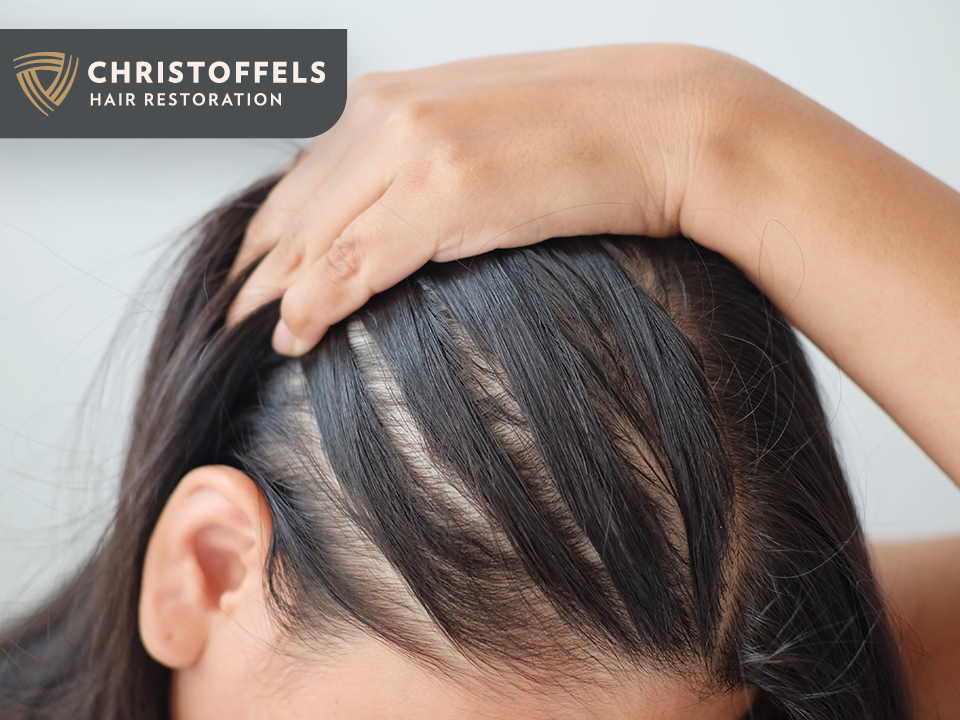Blitz News Digest
Stay updated with the latest trends and insights.
Shedding Light on Hair Loss: What Your Scalp Isn’t Telling You
Unlock the secrets of your scalp! Discover hidden truths about hair loss and regain your confidence in this eye-opening blog.
Understanding the Hidden Causes of Hair Loss: What Your Scalp Reveals
Hair loss is often perceived as a mere aesthetic issue, but understanding the hidden causes can unveil critical insights into your overall health. Your scalp, the foundation of your hair growth, can reveal various underlying conditions. For instance, scalp conditions such as psoriasis or seborrheic dermatitis can disrupt the hair growth cycle, leading to thinning hair or bald patches. Additionally, factors like hormonal imbalances, particularly involving testosterone and estrogen levels, can contribute significantly to hair loss. By paying attention to the health of your scalp, you can identify these issues early on and seek appropriate treatment.
Moreover, external factors such as stress and dietary deficiencies can also have a profound impact on hair health. Chronic stress triggers the release of cortisol, which can lead to telogen effluvium, a temporary form of hair loss. It is crucial to assess your daily routine and mental well-being. Furthermore, a diet lacking essential nutrients like iron, vitamin D, and proteins can hinder hair growth. A balanced diet, rich in nutrients, combined with proper scalp care, can promote healthier hair and mitigate the effects of hair loss. Truly, the condition of your scalp is an essential reflection of your overall hair health.

Top 5 Scalp Conditions That Could Be Affecting Your Hair Health
Your scalp health plays a crucial role in determining the overall condition of your hair. Understanding the top 5 scalp conditions that could be affecting your hair health is essential for addressing issues before they escalate. These conditions can lead to problems such as hair thinning, hair loss, and even scalp discomfort. Below are some of the most common scalp conditions that you should be aware of:
- Dandruff: This is one of the most prevalent scalp issues, often caused by dry skin, oily skin, or a sensitivity to hair products. It can result in white flakes and itchiness.
- Psoriasis: A chronic autoimmune condition that leads to the rapid buildup of skin cells, psoriasis can cause red patches on the scalp, which may be covered by thick, silvery scales.
- Seborrheic Dermatitis: This condition is characterized by greasy, yellowish flakes and can occur in oily areas of the body, including the scalp. It's often associated with inflammation and redness.
- Folliculitis: An infection or inflammation of hair follicles can lead to red bumps, itching, and even pus-filled blisters on the scalp.
- Ringworm (Tinea Capitis): A fungal infection that can lead to bald patches on the scalp, ringworm requires medical treatment to clear up effectively.
Is Your Diet Contributing to Hair Loss? Uncovering the Nutritional Secrets
When it comes to hair loss, many people overlook the critical role that diet plays in maintaining healthy hair. A diet lacking in essential nutrients can lead to deficiencies that weaken hair follicles and result in increased shedding. Protein is especially important, as hair is primarily made up of a protein called keratin. To promote hair growth, it’s vital to include adequate sources of protein in your meals, such as lean meats, fish, beans, and nuts. Furthermore, vitamins and minerals like iron, zinc, and biotin are essential for optimal hair health. Incorporate foods rich in these nutrients, such as spinach, sweet potatoes, and eggs, to support your hair from the root.
Moreover, healthy fats are another crucial component of your diet that can influence hair growth. Omega-3 fatty acids, found in fish like salmon and walnuts, help nourish the scalp and may even encourage hair density. Hydration also plays a significant role, as drinking enough water ensures that your body functions efficiently, influencing every aspect of your health, including your hair. To make sure your diet supports hair health, consider keeping a food diary to track your nutrient intake and identify any deficiencies that might be contributing to hair loss. Remember, a balanced diet is a cornerstone of vitality—not just for your hair, but for your overall well-being!